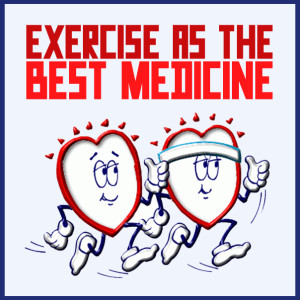Cognition affects memory, attention, concentration, judgment and evaluation, and so it is no surprise that deterioration of these facilities can be extremely disturbing to patients and their families. Cognitive decline is a natural part of aging, and results from decreased white matter integrity over time. As the average lifespan continues to increase, dementia grows as a source of morbidity. Pharmacotherapy for dementia is still in its infancy, and while the commonly prescribed drugs have shown efficacy in slowing the progression of dementia, they do little to improve patients’ cognition. Thus, preventative steps to maintain cognition in the elderly are imperative. Exercise can play an important preventative role in this process; in addition, research has shown it to have the potential to reverse cognitive decline — an outcome that still eludes traditional pharmacotherapy.




